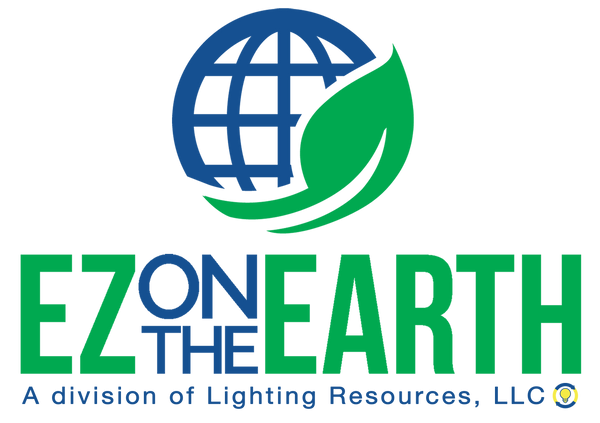E-waste recycling kits seem like a handy solution to our growing problem of discarded electronics. These kits promise to break down and collect e-waste, reducing its environmental harm. However, there are some Cons of E-Waste Recycling Kits to consider.
While these kits aim to be eco-friendly, recycling can create pollution if not done carefully. Additionally, handling e-waste can be risky if proper safety precautions aren't followed. The e-waste disposal regulations can be complex and confusing, making it difficult to ensure responsible recycling with these kits.
This doesn't mean we should give up on recycling electronics! Instead, it highlights the need for better recycling systems and more informed consumers. By understanding the challenges, we can push for more sophisticated solutions and ensure our e-waste is handled responsibly.
Top 3 Cons of E-Waste Recycling Kits
1: Health and Safety Risks
The cons of e-waste recycling kits extend significantly into health and safety risks, particularly through exposure to toxic substances and unsafe handling practices. E-waste contains hazardous materials like lead, mercury, and cadmium, which pose severe health threats. Workers and residents near recycling sites are often exposed to these toxins through inadequate safety measures, leading to neurological damage, kidney disease, and cancer.
Furthermore, the informal recycling processes, such as open burning and acid leaching, release toxic fumes and residues, exacerbating the risk of respiratory problems and other health issues. Ensuring the safety of individuals involved in or living near e-waste recycling operations remains a critical challenge.
2: Environmental Impact
Cons of e-waste recycling kits are not much more than throwing away old electronics barely. Throwing away old electronics, called e-waste, can hurt the earth. When we throw e-waste on our lands the wrong way, it can make the soil and water dirty. Chemicals like lead and mercury can get into the dirt and lakes, which is bad for human beings and animals.
Recycling e-waste the right way helps the earth. We can get useful materials inside, like gold and silver, back. If we don't recycle, we have to dig more from the ground, which hurts nature more. Some wrong ways to get rid of e-waste are burning it outside or using acid. This puts bad air into the sky, which is not good for breathing or health. We need better ways to deal with old electronics. Recycling and proper disposal can help the environment stay clean and prevent resources from being wasted.
3: Economic Concerns
The economic implications of e-waste recycling kits are multifaceted, often highlighting the high costs associated with their implementation. The complexity of disassembling and processing various materials from electronic devices necessitates expensive equipment and skilled labor, making the recycling process costly. Many municipalities find it less expensive to utilize landfills rather than invest in recycling programs. Additionally, the potential financial returns from recovered materials like gold and silver are currently minimal, reducing the economic incentive for recycling.
Moreover, the initial costs for setting up recycling facilities can deter investments in necessary infrastructure. In many regions, especially those lacking efficient collection systems, the logistics involved in e-waste management further escalate costs, which may be passed onto consumers, thereby reducing recycling rates. Some entities may even resort to exporting e-waste to countries with less stringent environmental regulations to cut costs, posing ethical and legal concerns.
Despite creating job opportunities, the economic viability of recycling programs in communities with small carbon footprints remains questionable. High operational costs, coupled with limited financial incentives such as insufficient subsidies or rewards, hinder the broader adoption of e-waste recycling initiatives.
Operational Challenges
Proper Disposal of Hazardous Materials
The cons of e-waste recycling kits often stem from the handling and disposal of hazardous substances like lead, mercury, and cadmium. These materials pose serious health risks, and their safe management is crucial. Yet, the lack of standardized regulations and consistent infrastructure across regions complicates the effective disposal of these toxic substances. This inconsistency leads to significant challenges in ensuring the safety of workers and the surrounding communities, highlighting the need for more robust, universally applied safety protocols in e-waste recycling processes.
Lack of Adequate Infrastructure
The lack of adequate infrastructure is another of the other cons of e-waste recycling kits is the insufficient infrastructure for e-waste recycling. Many areas lack the necessary facilities to handle the volume and complexity of e-waste, leading to lower recycling rates and increased landfill use. This not only results in environmental harm from leached toxic chemicals but also represents a lost opportunity to recover valuable materials. Effective management of e-waste requires substantial investment in infrastructure development, from advanced recycling facilities to widespread collection points, to ensure environmental safety and resource efficiency.
Closing
E-waste recycling kits might seem like a convenient solution, but there are also some cons of e-waste recycling kits. The lack of information about safety measures and health risks as well as the cost and difficulty of using these kits make them challenging to use. This complexity highlights that quick fixes aren't enough for e-waste recycling.
There's a clear need for better technology, clearer rules, and educating people about e-waste. By tackling these issues, we can not only protect our health and environment but also create new economic opportunities through innovative recycling methods. Finding better ways to handle e-waste is essential if we want a sustainable future and a responsible approach to electronic waste management.
This is why EZ On The Earth introduces you to the best quality e-waste recycling kits with proper disassembling instructions for your electronics. It offers you keen details on how to and also comes with the proper support call, which means you are safe now and can take part in a greener future for the earth safely.

